ECHR Articles 4 & 6, Modern Slavery & Fair Trial - Violations
Are organisations allowed to deliberatlely CCTV footage of a sacking incident?
(Even if the worker requests it early to prove the sacking was unfair)
Click for ECtHR Application Form.
Facts
(employment law - action by worker against organisation, 50,000+ pounds, CCTV requested/deleted)
1. Parties: The Applicant is a worker, Patrick Henry McAuley; the original Respondent was Ethigen Ltd, a UK pharmaceutical warehouse licensed by the Medicine and Healthcare Regulatory Agency (MHRA).
2. Ethigen was a warehouse who bought medicine & healthcare products from pharmaceutical manufacturers across the world (mainly Asia). They stored them in their warehouse to supply to European hospitals & pharmacies.
3. Pharmacies & Hospitals from across the Europe bought medicine & healthcare products from Ethigen, and then passed Ethigen's medicine onto their patients who were sick & requiring medical care.
4. In June 2022 McAuley began working as a pharmaceutical picker packer in Ethigen Ltd. This meant that an order from a European hospital or pharmacy was paid for & submitted online to Ethigen - this order was then printed out by an Ethigen supervisor & handed to McAuley, and McAuley had to go round the Ethigen warehouse with a trolley to collect it in, scan it through the tills, pack it into a box, put the address label for the hospital/pharmacy on the box, and then leave it on the conveyor belt at the bottom of the warehouse, where the delivery drivers would pick it up & transport it to the hospital or pharmacy.
5. At the beginning of a shift on McAuley's 9th day working in Ethigen, McAuley was ordered by his supervisor that he was not to do the pharmaceutical picker packer work, but was instead 'bin man'. 'Bin man' meant bare-handed & without a luminous vest on, he was to go round all the warehouse bins & pluck brown boxes out of them.
6. These bins throughout Ethigen's warehouse aisles contained brown boxes from medicine boxes on shelves being used up & tossed into them, as well as other general rubbish Ethigen staff discarded there.
7. 1000's of brown boxes were placed in aisle bins each day. Brown boxes with their structural integrity were to be raided then taken to the tills so that hospitals' & pharmacies' orders could be packed into these. If a new clean box was used to pack hospitals' & pharmacies' medicine, this cost 2-10 pounds each - this bin dipping by Ethigen for brown boxes for their orders saved 1000's of pounds each day on new boxes costs.
8. The brown boxes without their structural integrity were to be taken to the main bin outside & put in there - this involved McAuley dodging amongst heavy goods vehicles carrying wide loads (without a vest on).
9. Many Ethigen picker packer staff chewed gum as it was laborious work & this assisted concentration.
10. This meant that McAuley bare-handed had to rummage amongst blobs of staff's wet discarded chewing gum in the bins to get the brown boxes out. The boxes which hospitals' & pharmacies' medicine orders were packed into previously had chewing gum & other rubbish inside them, and lying against the outside of them.
11. McAuley asked his Ethigen supervisor if he could have a word in private to discuss concerns over this, & they duly went to a private spot in the warehouse.
12. McAuley stated that he was concerned that this raised health & safety issues for staff & patients.
13. The Ethigen supervisor told McAuley there was no discussing it & he had to do it immediately.
14. McAuley asked the Ethigen supervisor if he could have the email address of senior management to make a complaint in writing about this.
15. The Ethigen supervisor said that this would probably be fine, but before he allowed this, he wanted to discuss this with a fellow supervisor.
16. Ethigen supervisor returned & told McAuley he'd to do bin duty immediately or he was fired on the spot.
17. McAuley who needed the job & the money, stated that he was doing it 'under protest' with a view to making a complaint in writing after his shift.
18. McAuley did the 'bin man' work for the shift, putting most boxes into the main bin for hygiene reasons.
19. 3 hours after the shift end time McAuley received a text to inform him that he was fired - the reason provided to him was that Ethigen were not happy with his reply & attitude to bin duty.
20. McAuley raised a complaint with the MHRA - the MHRA expressly affirmed that this was 'whistleblowing' on a dangerous workplace practice endangering both staff and patients across the UK & Europe.

Procedure
Alternative Dispute Resolution (ADR)
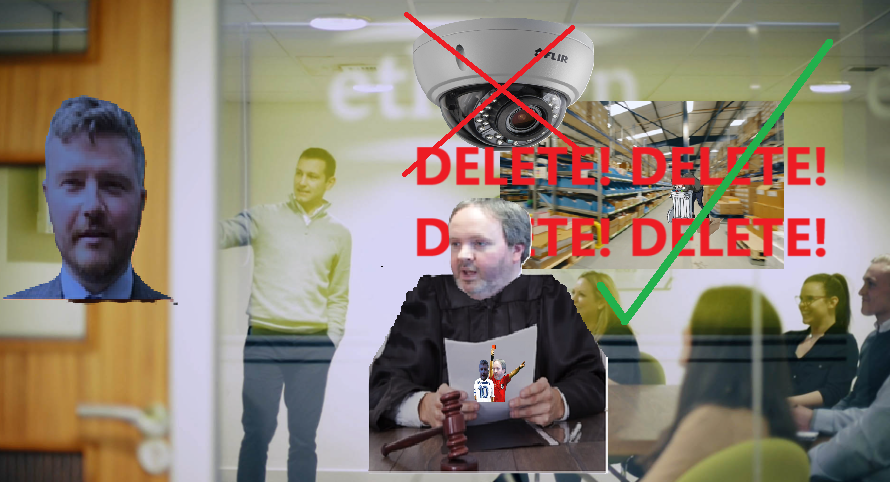
21. McAuley sent Ethigen an intimation of claim letter for unpaid wages.
22. Ethigen sent back a repudiation letter informing McAuley that he was lawfully sacked.
23. On 5 occasions McAuley requested the CCTV footage of the shift & for the days leading up to the shift.
Employment Tribunal (ET), Glasgow
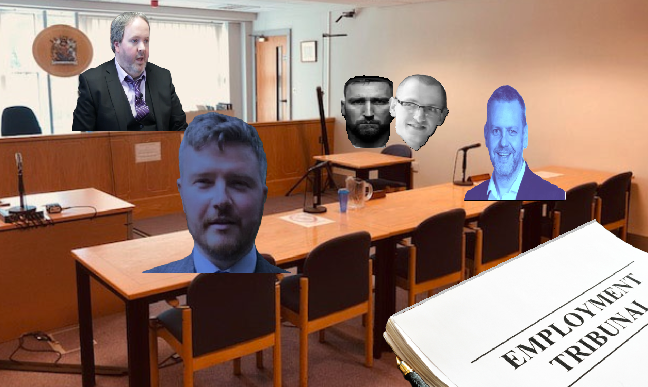
24. McAuley raised an ET1 Form in the ET, Glasgow, for (i) unfair dismissal, (ii) detriment, and (iii) Harassment, seeking an order from this Court for Ethigen to pay damages of circa 50,000 pounds. McAuley also did a 'disclosure' for the CCTV footage he requested early in the process.
25. The ET Glasgow duty Judge sifted this ET1 as valid for service, so sent Ethigen an ET2 informing them that they had to answer to this in an ET3 Form.
26. Ethigen filed an ET3 denying liability, & informed that they deleted the CCTV footage of these incidents.
27. McAuley added a 4th plea of (iv) 'strike out' for early requested CCTV footage of the incidents deletion.
28. The ET Glasgow appointed Employment Judge Peter O'Donnell as the Judge for this matter, and at a Case Management Hearing he determined that this matter was to go to a 2 day trial, and that the only relevant witnesses were McAuley himself & the 2 supervisors in Ethigen.
29. McAuley was deeply unhappy with this ET Schedule & going to trial without the CCTV footage of the incidents under dispute. He appealed to the Employment Appeal Tribunal (EAT) that only the Ethigen CCTV footage controllers should be allowed to give evidence, & if no good reason provided over CCTV deletion, then Ethigen liability defences struck out, with a Hearing only to ascertain damages owed & not on liability.
30. The EAT Judge Simon Auerbach arranged a Hearing to consider this, so McAuley duly put in an application to the ET Glasgow that the Hearing should be postponed until after the EAT Hearing.
31. The ET Glasgow Judge O'Donnell refused to postpone, affirming he did not care if the EAT Edinburgh had arranged a Hearing, & ordered that the 2 day ET trial he set was going ahead with or without McAuley.
32. McAuley duly attended a standard 2 day ET trial & so did the 2 Ethigen supervisors.
33. 1 week later, EJ O'Donnell dismissed McAuley's 4 pleas, determining that this was a lawful sacking.
34. EJ O'Donnell's legal reasoning for dismissal was to state 4 times that case-law in 2001, 2002, 2003, 2004 expressly referred to legislation passed in 2013 - this reasoning was unintelligible & quite frankly amounts to time travel by Judges under Scots Law.
35. EJ O'Donnell relied on 17 new documents in his Judgment which were not in the 400 pg evidence bundle agreed (allegedly extracted out of the private MOJ database) - EJ O'Donnell took 17 'no context' snippets of McAuley's alleged reactions to the CCTV issue & his delay refusal to strike him out - scandalous behaviour.
36. EJ O'Donnell further stated that an employer could delete CCTV footage of a worker sacking incident. His reason for this was because the employer's supervisors could just give imprecise evidence from memory.
Employment Appeal Tribunal (EAT), Edinburgh
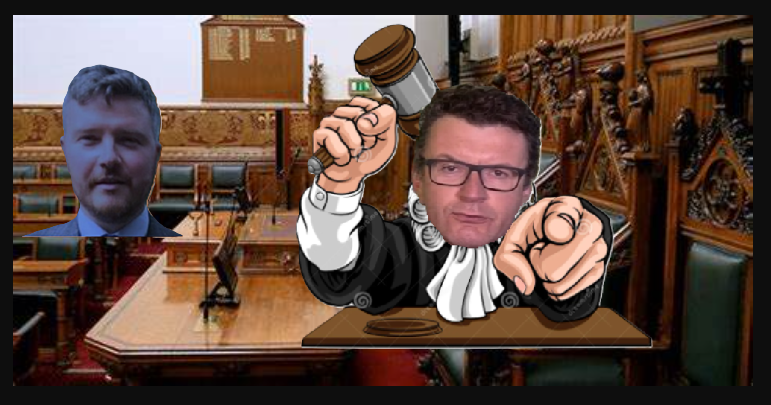
37. McAuley lodged an appeal with the EAT. McAuley argued that EJ O'Donnell had erred in law over the 4 pleas, (i) unfair dismissal, (ii) detriment, (iii) harassment, & (iv) strike out for CCTV deletion of sack incident.
38. McAuley further argued that the 17 new documents dated months before allegedly referring to 'no context' quotes attributed to him he had not seen at trial, did not recall saying, were not in the evidence bundle, & at best were wildly out of context & doctored into a ludicrous scrapbook, was not valid evidence.
39. McAuley received an EAT 1993 Regulations, Rule 3(7) 'Strike Out' letter from EAT Judge Caspar Glyn.
40. EAT Judge Glyn stated that the case law in 2001, 2002, 2003, and 2004 supposedly referring to legislation not passed until 2013 was 'model' reasoning - one must presume frankly the model being referred to was the DeLorean.
41. EAT Judge Glyn also stated that referring to 17 new documents not in the evidence bundle & not put to the witness was 'relevant & properly referred to'.
42. EAT Judge Glyn supported employers in the UK being allowed to delete early requested CCTV footage of a workplace sacking incident of a worker, because the supervisors can just give rough evidence about it from memory.
43. McAuley contested this Rule 3(7) Letter so the EAT arranged a 3 hour 'Strike Out Hearing' - a 95% strike out rate Hearing which only McAuley attends, but Ethigen can listen to & make submissions if they choose.
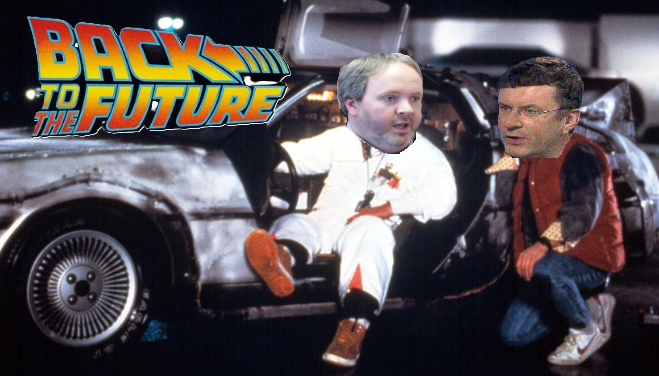
UK Government, Ministry of Justice (MOJ)
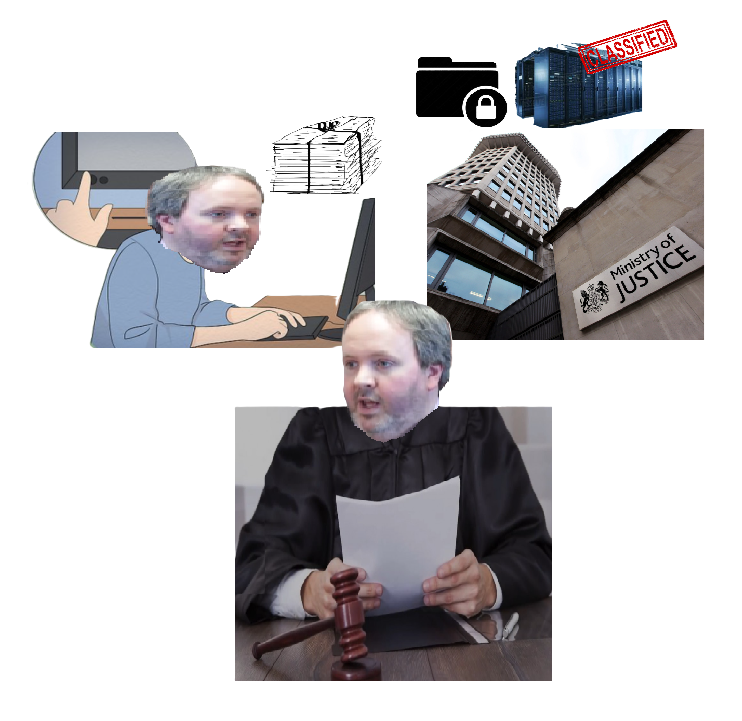
44. McAuley wrote a letter to the MOJ, the employer of Judges, to inquire about EJ O'Donnell referring to 17 new private documents allegedly from their database. The MOJ affirmed this was 'unlawful' by EJ O'Donnell.
Supreme Court of Scotland, IHCS, Edinburgh
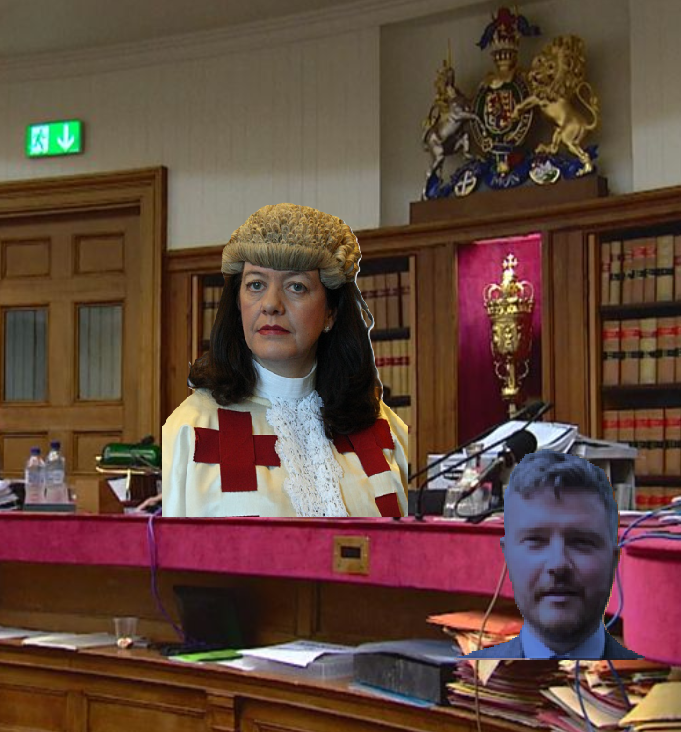
45. McAuley appealed to the Supreme Court of Scotland, Inner House Court of Session, Edinburgh. He appeared there in person alone (Ethigen didn't go) before Lady Morag Wise in a Leave to Appeal Hearing.
46. McAuley expressly read out Regulation 3(7) of Employment Appeal Tribunal Rules (EATR) 1993 stating that a Rule 3(7) letter could only be issued by an EAT Judge if, (i) there were 'no reasonable grounds' for an appeal, and (ii) that the Employment Appeal Tribunal Judge wrote a letter with 'reasons' in it.
47. McAuley argued that the Employment Tribunal adding 17 new documents into the Judgment, which were not in the evidence nor put to him at the Hearing, was an automatic 'reasonable ground' for an appeal (especially a 50k damages hearing where he was now likely liable for 50k expenses too - 100k flip). He argued a Rule 3(7) letter being issued in these circumstances breached EATR 1993 Regulation 3(7).
48. McAuley further argued that if there was CCTV footage of a workplace sacking incident the worker requested to prove an unfair sacking, & the worker lost, that was an automatic reasonable appeal ground.
49. McAuley also argued that the Rule 3(7) letter calling reasoning which amounted to time travel by Scots Law Judges 'model' was not a 'reason', so a Rule 3(7) doing so breached EATR 1993 Regulation 3(7).
50. McAuley invited Lady Wise to reduce as unlawful the Rule 3(7) Letter & the EAT Strike Out Hearing, and order that McAuley v Ethigen proceed to a Full Hearing in the Employment Appeal Tribunal.
51. Lady Wise dismissed the application, refused leave to appeal, & refused to grant the order sought. Lady Wise affirmed the 95% rate EAT Strike Out Hearing was to go ahead in this McAuley v Ethigen scenario.
52. Lady Wise simply deemed that the Employment Tribunal Glasgow inserting 17 new documents into the Judgment which were not in the evidence bundle was a valid practice & not an automatic reasonable appeal ground. She stated that an employer deleting early requested CCTV footage of a workplace sacking incident & then the worker losing, was not an automatic reasonable ground for at least a 2nd opinion appeal either.
53. Lady Wise stated that because the Rule 3(7) reasons were 5 pages these were valid reasons - she even stated that an EAT Judge could indeed use reasoning amounting to time travel as a reason for a decision if they wanted - she concluded that for Judicial 'reasons' quantity was more important than quality.
United Kingdom Supreme Court, UKSC, London
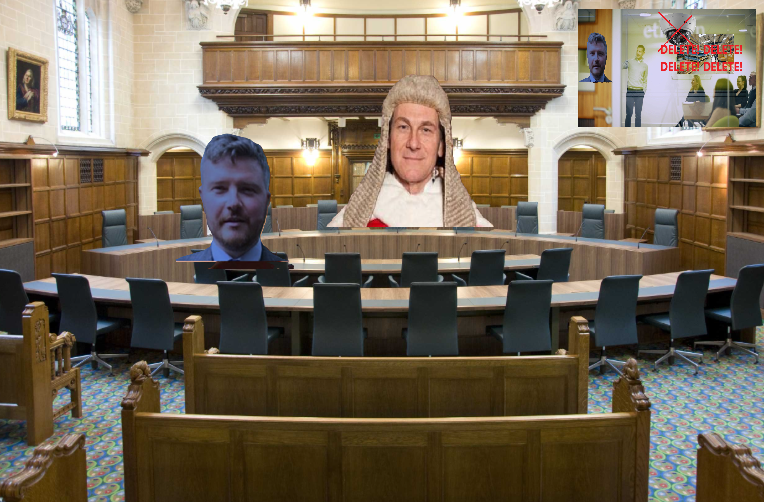
54. McAuley appealed to the UKSC arguing the EAT Strike Out Hearing was a violation of Article 6, ECHR. (i) He argued time travel was not a valid 'reason' for a Strike Out Letter, & (ii) a strike out letter being sent after 17 new documents not in the evidence bundle nor referred to a trial were entered into the ET Judgment violated 'access to court'.
55. McAuley again argued that if there was CCTV footage of a workplace sacking incident which the worker requested to prove the sacking was unfair, & the worker lost, not granting an appeal for a 2nd opinion in those circumstances was a violation of 'access to Court', & amounted to 'modern slavery' for British workers.
56. McAuley made the plea for the UKSC to reduce as unlawful both EAT Judge Glyn's Rule 3(7) letter & Lady Wise's IHCS Judgment, and order that McAuley v Ethigen proceed to a Full Hearing in the EAT.
57. Lord George Leggatt made a UKSC 'Direction' in this matter - he bluntly refused & banally stated that claims the EAT Strike out Hearing was a a violation of Article 6 or any there ECHR Article were 'baseless'.
58. McAuley contested this & called for a Public Hearing in the UKSC where the ECHR compliance of the EAT Strike-Out Hearing could be contested in open Court before the British public. This is a right all British workers possess under the UKSC Rules of Court & McAuley as a British citizen exercised this right.
59. Lord Leggatt & the UKSC simply ignored this worker's right & refused to call a public Hearing in UKSC.
EAT, Edinburgh
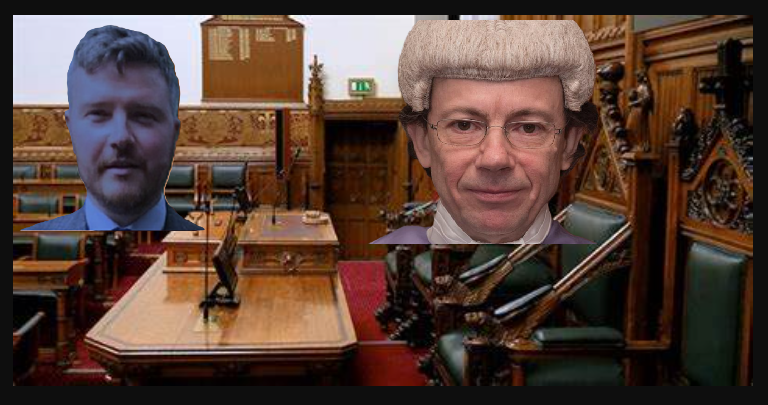
60. The EAT were informed of this by McAuley - they duly arranged for the Strike Out Hearing on 30/06/25.
61. McAuley made a motion for McAuley v Ethigen to be a Full Hearing & not a Strike Out Hearing.
62. EAT Judge Auerbach refused this on 14/01/25 & insisted a Strike Out Hearing was to be used in a case like this.
Remedies sought from ECtHR to correct this
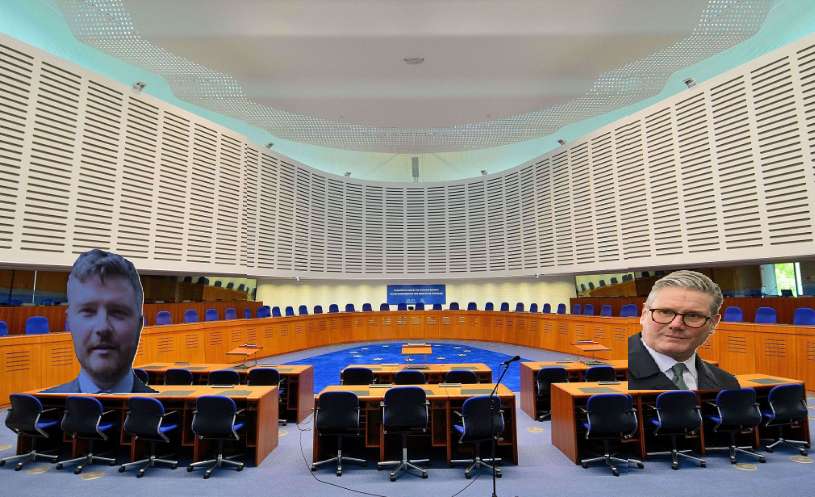
The UKSC Direction was 28/10/24 - this confirmed that the EAT Strike Out Hearing had to go ahead in Edinburgh these circumstances. The EAT Direction following up on this was January 14th 2025, confirming that the Strike Out Hearing was to take place in June 2025. The UK's position absolute final position is that a Strike out Hearing is to take place in this scenario.
Article 6
Article 6 - Recommendation - Recommend that the schedule EAT Strike Out Hearing in this case is in violation of Article 6, and should instead proceed to an EAT Full Hearing in Edinburgh.
Article 4
Article 4 - Recommendation - Recommendation that an organisation should be struck out by the ET Glasgow for deleting early requested CCTV footage of a workplace sacking incident. Further recommendation that the very least a worker deserves in these circumstances is a Full Hearing on appeal to the EAT Edinburgh to be arranged, so that a second written public Judicial opinion related to this can be obtained.
Legal Reasoning
Article 6 - Fair Trial
'Reasons' - time travel by Scots Law Judges is plainly not 'model' reasoning, and it is not a valid 'reason' in an EAT Rule 3(7) Letter to justify an oral Strike Out Hearing with a greatly reduced 95% failure rate. An EAT Judge writing this in a strike out letter, then 2 Judges in the IHCS & UKSC showing blind loyalty to the EAT Judge over this nonsense, is indisputably a violation of the Article 6 duty to provide 'reasons' in their Judgments by the United Kingdom of Great Britain & NI. See ECtHR Article 6 Guide, Part (IV) Procedural Requirements, A. Fairness, (7) 'Reasoning' of judicial decisions, pages 111-114.
'Access to Court' - (i) 17 new documents being entered into an ET Judgment, which were not part of the evidence bundle nor put to the litigant at trial, is an automatic ground for a Full Hearing on appeal to the EAT. (ii) Early requested CCTV footage of a workplace sacking incident to prove it was blatantly unfair being destroyed by an organisation, & the organisation still winning at an ET trial, is an automatic ground for at least a 2nd opinion & Full Hearing on appeal to the EAT. It is indisputably a violation of Article 6 by the UK to have these disreputable practices taking place at Court trials, then to not even grant a Full Hearing on appeal automatically. See ECtHR Article 6 Guide, Part (II) Right to Court, A. 'Right and access to Court', pages 34-51.
'Equality of Arms' - Even if McAuley is successful at the EAT Strike Out Hearing & a Full EAT Hearing is called, Ethigen still get an inside track & dress rehearsal of all his arguments at the Strike Out Hearing, so in a highly debateable case like this, it is just giving Ethigen an unfair advantage in an EAT Appeal Full Hearing. The UK are simply operating a practice where workers are inherently disadvantaged against organisations in the EAT Appeal process, & it violates Article 6. See ECtHR Article 6 Guide, Part (IV) Procedural Requirements, A. Fairness, 5. 'Equality of Arms', page 104-106.
The EAT Strike Out Hearing scheduled for June 30th 2025 in Edinburgh is submitted to violate Article 6, ECHR, on sub-grounds of 'Reasons', 'Equality of Arms', & 'access to Court'. There is an interface between these & other sub-grounds of Article 6 this EAT Strike Out Hearing could be deemed to violate.
Article 4 - Modern Slavery
In Britain the policy is being deployed that a worker can be sacked over a workplace complaint (whistleblowing), request the organisation's CCTV footage of the incident to prove the complaint valid & the sacking blatantly unfair, & the organisation can deliberately delete the CCTV footage, and just allow their supervisors to give witness evidence against the worker from memory at an ET trial. The ET trial Judge is then able to just believe the word of supervisors ganging up against the worker, without the worker even having a right to a 2nd opinion on appeal to the EAT. This is plainly mistreatment of workers in Britain. This is a serious form of intrusion by the ET & EAT on the freedom a UK worker has over their career, and it is submitted that this practice taking place is not ECHR compliant. It indeed amounts to modern slavery being imposed by the UK public authorities in the ET & EAT on any of the 10's of millions of workers across the British workplace. If an organisation is not struck out for that automatically in the ET, the very least a worker should get is a right to a 2nd opinion on appeal at a Full Hearing in the EAT. See ECtHR Guide, Article 4,Part II. The Prohibition of Slavery & Forced Labour, 2. 'Servitude', page 8, and, III. Positive Obligations, B. 'The positive obligation to take operational measures', page 19.
Further reasons
There is an EAT Edinburgh 'Strike-out' Hearing. Not used because:
(1).This Strike Out Hearing is ex tempore - oral Judgment. This case affects medicine contaminated with lethal noroviruses from discarded chewing gum being deported from UK warehouses to hospitals & pharmacies in Europe to be eaten by European patients. It should be clarified that an oral Judgment is not suitable for a case of this nature. If the ECtHR recommends a Full Hearing, the EAT Judgment is written & inserted onto the EAT's database - this means it will be published for affected people across Europe to read - authorities in Europe can be reassured (or not) about hygiene standard on medicine going to Europe from the UK;
(2). There is 95% strike-out rate my claim for 50,000 pound will be dismissed & I will owe 50,000 in legal expenses, with no written record for why;
(3) To go to this Strike Out Hearing legitimises the dirty practice in important trials of the ET Glasgow inserting 17 new documents into ET Judgment after the trial, with this dirty tactic not giving automatic right to an EAT appeal;
(4). To go legitimises time travel as a reason for an ET Judgment worth overall net 0.1m+ pounds;
(5) To go legitimises organisations deleting early requested CCTV footage of workplace sacking incident & then winning at trial with supervisors ganging up on a worker, & no automatic right to appeal in this scenario;
(6.) Even if win at Strike Out Hearing the cost is I've given away my arguments & Ethigen unfairly advantaged;
(7). CCTV footage deletion of a disputed incident is not allowed in sport, & the same should be applied in employment law by the ECtHR.
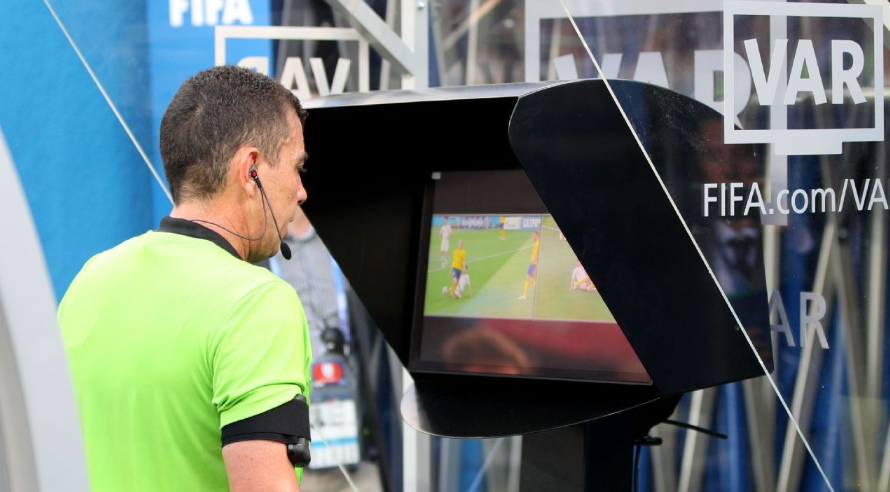
Warning: This is not professional legal advice. This is not professional legal education advice. Please obtain professional guidance before embarking on any legal course of action. This is just an interpretation of a Judgment by persons of legal insight & varying levels of legal specialism, experience & expertise. Please read the Judgment yourself and form your own interpretation of it with professional assistance.
